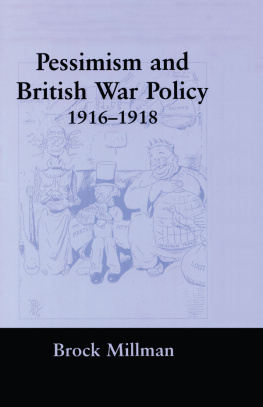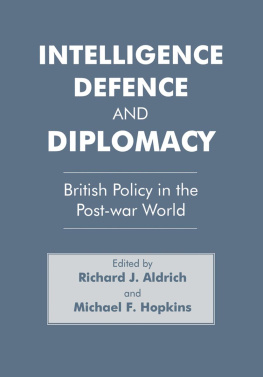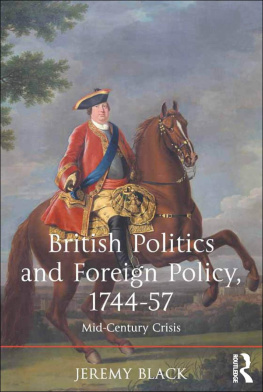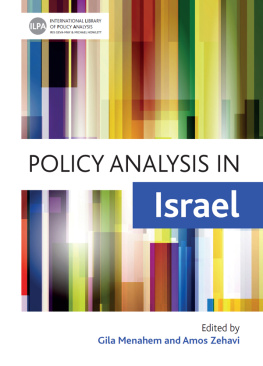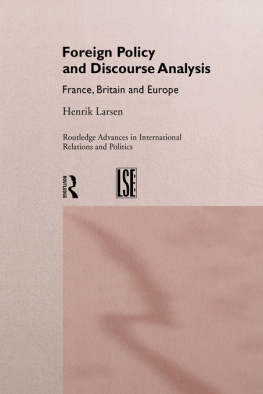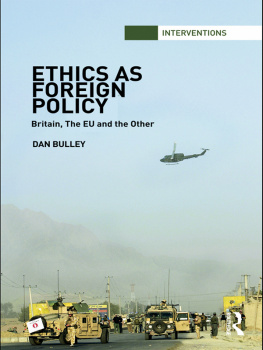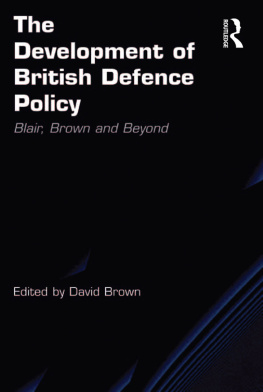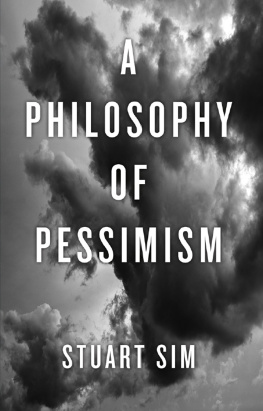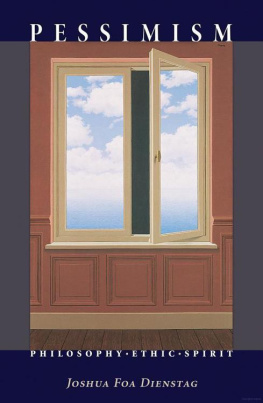PESSIMISM AND BRITISH WAR POLICY
19161918
CASS SERIES: BRITISH POLITICS AND SOCIETY
ISSN 14671441
Series Editor: Peter Catterall
Reflecting a belief that social and political structures cannot be understood either in isolation from each other or from the historical processes which form them, this series will examine the forces which have shaped contemporary British politics and society. Social change impacts not just upon voting behaviour and party identity, but also the formulation of policy. But how do social changes and political developments interact? Which shapes which? Books in the series will aim to make a contribution both to existing fields, such as politics, sociology or media studies, as well as opening out new and hitherto neglected fields such as management history.
The Making of Channel 4, Peter Catterall (editor)
Managing Domestic Dissent in First World War Britain, Brock Millman
Reforming the Constitution: Debates in Twentieth-Century Britain, Peter Catterall, Wolfram Kaiser and Ulrike Walton-Jordan (editors)
Pessimism and British War Policy, 19161918, Brock Millman
Amateurs and Professionals in Post-war British Sport, Adrian Smith and Dilwyn Porter (editors)
A Life of Sir John Eldon Gorst: Disraelis Awkward Disciple, Archie Hunter
Conservative Party Attitudes to Jews, 19001950, Harry Defries
Pessimism and
British War Policy
19161918
Brock Millman
Royal Military College, Kingston, Ontario
First published in 2001 by
FRANK CASS PUBLISHERS
This edition published 2013 by Routledge
2 Park Square, Milton Park, Abingdon, Oxon, OX14 4RN
711 Third Avenue, New York, NY 10017
Routledge is an imprint of the Taylor & Francis Group, an informa business
Copyright 2001 Brock Millman
British Library Cataloguing in Publication Data
Millman, Brock, 1963-
Pessimism and British war policy, 19161918. (Cass series. British politics and society)
1. World War, 19141918 Great Britain 2. Great Britain Military policy 3. Great Britain Politics and government 19101936 4. Great Britain Foreign relations 19101936
I. Title
940.341
ISBN 978-0-7146-5079-1 (hbk)
ISSN 1467-1441
Library of Congress Cataloging-in-Publication Data
Millman, Brock, 1963-
Pessimism and British war policy, 19161918/ Brock Millman.
p. cm. (Cass series-British politics and society, ISSN 1467-1441)
Includes bibliographical references and index.
ISBN 0-7146-5079-X (hbk)
1. World War, 19141918-Great Britain. 2. Great Britain-Military policy.
3. Military planning-Great Britain-History-20th century. I. Title. II. Series.
D546.M55 2000
940.40941-dc21
00-045162
All rights reserved. No part of this publication may be reproduced, stored in or introduced into a retrieval system or transmitted in any form or by any means, electronic, mechanical, photocopying, recording or otherwise, without the prior written permission of the publisher of this book.
Typeset in 10.5/12.5 Zapf Calligraphic by Vitaset, Paddock Wood, Kent
For my family and for Lisa, without whose help and understanding this book could not have been written; and for 4th Battalion the Royal Canadian Regiment, the Canadian Grenadier Guards, the Essex and Kent Scottish, and for the Seaforth Highlanders of Canada, my friends in good times as in bad.
Contents
I N WAR, as in life, being realistic is usually commended as the best strategy. But what is reality? Optimism and pessimism involve very different ways of constructing reality In the hands of an imaginative commander such as Nelson, optimism may create opportunities which might not otherwise have existed. Even in the hands of an arguably less imaginative character, such as Field Marshal Haig, optimism may at least mean that the troops and armour were in place to take advantage of the opportunities which suddenly arose in the late summer of 1918. Pessimism, on the other hand, can be seen as a constraint on opportunity It inculcates either the passivity of a George McClellan or the search for alternative, peripheral pursuits which came to occupy so many of Haigs colleagues and ministerial superiors towards the end of the First World War.
Both optimism and pessimism are rarely unalloyed. The pessimistic construction which came to dominate British policy in 191618, as Brock Millman skilfully shows, reflected a range of influences: the effects of the Russian Revolution, war fatigue allied to estimates of likely German strength on the Western Front, domestic pressure, colonial concerns. But, for a generation temperamentally inclined to imagine their geopolitics in terms of global balances, seen strategically from India as well as from London, the roots of this policy were deeper than the immediate circumstances of war. The New Eastern strategy thus reflected the result of a confluence between immediate pessimism and longer-term influences which determined that the new policy was always likely to be, for the men involved, the most satisfying alternative to the pursuit of the war of attrition on the Western Front. Indeed, to some extent it reconfigured the Britishs own historic Drang nach Osten in the Middle East and India to take account of the new strategic opportunities apparently offered by Turkish and Russian collapse.
The New Eastern strategy, in other words, may have been born of military pessimism, but it also involved a willingness to intervene in the east which was to prove wildly optimistic. British intervention was sometimes ineffective, as in the Caucasus. In other instances, as in Persia, it was to prove counter to their own interests. In places it was to lead to power vacuums, as in the residue of the Habsburg empire, vacuums that were to be filled by nationalist enmities, the legacy of which remains with us. Where power vacuums did not occur immediately it was a consequence of the projection of British (or sometimes French) power in the aftermath of 1919. The result, however, was the strategic over-extension that was to plague both powers for the next 50 years or so.
It may be, nevertheless, that the British ended up strategically better prepared when, as the New Easterners had predicted, war against Germany was renewed. It is a moot point, however, whether the New Eastern strategy through the destruction of Austro-Hungary, through denying a decisive victory in the west by the deployment of troops elsewhere and through its long-term consequences for British power helped make that second conflict more likely and its outcome less secure.
By highlighting the nature of British strategic thinking in the last two years of the Great War, Brock Millman provides a new prism through which to view that conflict and its consequences. This book also offers important new insights into the way in which reality is constructed and shapes policy. It shows how and why pessimism about the likely outcome of the war permeated British thinking in 191618. Rarely, however, can pessimism have had such profound consequences.
PETER CATTERALL
Series Editor
B OOKS ON British war policy during the First World War are innumerable. My only defence in writing another is that I do not feel that the shape of British grand strategy in the last years of the war has been properly delineated, and therefore, that the implications of the policy have not been appreciated. This book is an attempt to fill what I consider to be an enormous, residual gap in our understanding of the war.

